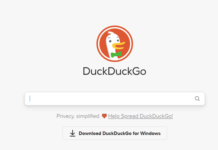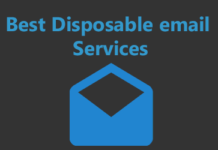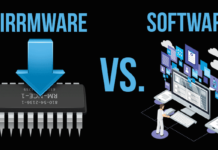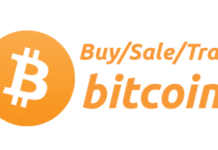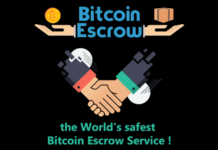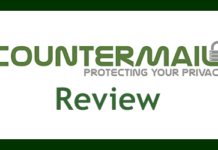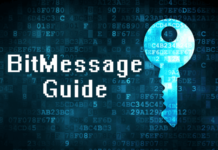Newsflash: The govt. spies on you! It monitors your calls, your texts (even encrypted once such as Whatsapp, Facebook, Twitter). your social media profiles, browsing habits, internet activity and everything else! (But you already knew that, didn’t you?)
Most people simply accept it thinking, how can a common man fight billion dollar agencies with the law backing them up with all that power, isn’t that right? Well fortunately you can, without spending a single penny or even letting anyone else know you’re doing it!
That’s what this article is all about, I’ll be talking about the Top 10+ ways you can prevent the govt. from spying on you!
Does the Govt. Really Spy on You?
For those who find it hard to believe, we’ve done our share or research and armed ourselves up with proofs and data to walk our talk!
The NSA was accused of wiretapping (source: TheGuardian) the communications of François Baroin and Pierre Moscovici, two successive French Finance ministers!
Even the German Chancellory was monitored and tapped for “decades” as per a report published by WikiLeaks.
If you think it only happens to VIPs and important personalities and only by govt. agencies, you’re wrong.
Companies like Google and Facebook are multifaceted and they have access to the finest details of our lives, Google owns not just Google, but Gmail, Youtube, and Drive as well.
The same holds true for Facebook, it owns Facebook, Whatsapp, Instagram to name just a few of the daily basic apps that just about everyone on the planet uses. Even Apple holds a number of apps such as iMessage and basically the “iPhone”!
If you look into it, Youtube knows exactly what you watch online, Google obviously knows every query you’ve ever searched for, Facebook is like a second portal into our lives and relations (even personal problems!), and is anything more personal than Whatsapp?
So when you sum all these up, you’d know anyone who has access to even one of these apps will have a detailed knowledge of your existence! (And these companies own “all” of those apps).
To make things worse, companies like Gmail and Yahoo have rights to actually “read” your E-mails, you heard that right.
And because those companies fall under the U.S jurisdiction, they can be easily coerced into sharing away all of those details whenever the govt. warrants it.
Edward Snowden already leaked documents which shed light on the PRISM surveillance program, it’s a program under which the U.S govt. (basically NSA) can demand companies such as Google, Facebook, Skype, Apple etc. to share private, confidential, encrypted communications of individuals under the FISA Amendment Act 2008.
![]()
NSA was also accused of designing a spyware which would grant them remote backdoor access to iOS devices (source: Jacob Applebaum’s conference – https://www.youtube.com/watch?v=ntTnLO-4p1o) and here’s the leaked document which proves it exists and explains how it works:
![]()
*If you don’t know who Jacob is, among many other things he was a core member who helped develop the Tor browser, and Tor as you’ll soon see is a guardian angel when it comes to user privacy and anonymity.
In addition, recently a hardware device was identified which can hack into just about any iPhone (even the iPhoneX) in a matter of minutes!
This whole section I believe has more than ample proof to establish the fact that even if the govt. doesn’t spy on you as an individual target, every individual still is at a major privacy risk regardless of him being a VIP or a homeless guy.
Also, the risk isn’t centred to the U.S or any individual country for the simple fact that Google, Facebook, Yahoo, iMessage, Whatsapp, Instagram, Twitter or any other similar app or platform has global presence.
So let’s finally get down to building that privacy fortress for you and start preventing the govt. from spying on you.
How to Prevent the Govt. from Spying on You
Even though there’s no absolute, full-proof method of app to do so, it’s possible with the combination of a number of apps and practices.
The three primary tools you need right away are:
- Tor Browser. (Web Browser)
- VPN (Recommended VPN service is NordVPN)
- Countermail.com, Skiff.com (Anonymous Email services)
- VeraCrypt (AES Encryption Program)
- Sync.com and pCloud (End to End Encrypted Cloud Storage)
- TAILS (Operating System).
Tor Browser
Download: https://www.torproject.org
TOR stands for “The Onion Router” and is a free browser developed with the primary aim of increasing user anonymity and privacy.
As already mentioned, Google and Google Chrome both track your browsing habits, keywords you search for, websites you visit, time you spend on each site and everything else. The same holds true for Yahoo, Internet Explorer or most other mainstream browsers.
It also prevents websites from spying on you and doesn’t reveal your physical location to the sites, which otherwise is known to them with the mainstream browsers.
How Tor basically works is it rotates your website requests via various nodes before finally relaying it off to the site, so the site doesn’t know the true identity of who exactly is requesting or where the request is coming from.
![]()
Also, these nodes too are only familiar with their immediate neighbours and not the whole circuit, so any individual node will only have knowledge of its previous node, and the node it relays the connection further to, but not of any previous of future nodes.
An even simpler explanation is, suppose you wish to go to a store (the website) but instead of going yourself, you ask one of your friends to ask one of his friends, ask one of his friends, to again ask one of his friends to go to the store, and none of these friends know each other except the ones who asked them, and the next friend they’re going to ask.
Simply download Tor, install it like any other application out there and start browsing without leaving all those trails and breadcrumbs. Note that Tor obviously lets you browse normal sites, but you also can use it to browse .onion sites on the Tor network and even access the Deeper/Darker side of the web.
You can further increase security for yourselves by clicking on that little “onion icon” on the top-bar, and then selecting “security settings” and finally sliding that slider all the way to the top!
![]()
NordVPN
Download: https://nordvpn.com/
A VPN stands for “Virtual Private Network” and in the simplest terms it’s an application which hides your real IP address and provides you a secondary IP address to connect to the Internet.
Kevin Mitnick the world renowned security expert and formerly most wanted hacker says- “The first thing I’d recommend to the average person on the street……use a VPN service”. (Source: https://youtu.be/T8aXx3K_lKY?t=360)
Another one of its functions is securing your internet traffic, which it does via a number of protocols. In simpler terms it basically wraps your traffic in envelops so they can’t be spied upon or eavesdropped!
There are a number of VPNs on the planet, some offer more countries and IP addresses to chose from, others offer more encryption protocols, some others may just be easier to use.
But in my personal opinion, NordVPN is in all aspects the best VPN which has a well-balanced price, extremely secure, is fast (it’s rare), has a no logs policy and offers IP addresses from 62 countries and boasts over 5252 servers worldwide!
Feel free to go with any other VPN if you feel it surpasses NordVPN in anyway, or fits your budget better.
One more thing you should know about the VPN, if you have DD-WRT or Tomato Firmware router then you can configure VPN on Router level and can run the encrypted network in your home.
Below I am giving you some VPN routers information that you can use in your home or office environment.
- Best VPN Router for Small Business
- Best DD-WRT Router List for Home or Small Office
- Best VPN Router for Home
- 4 Best Router for Tomato Firmware
CounterMail
Website: https://countermail.com/
CounterMail is a fully End to End encrypted e-mail service. Its prime goal is anonymity and privacy which makes it a perfect addition for any and all anti-govt. measures.
It uses Diskless web servers making sure these can’t be stolen and there’s no leak of data. Furthermore, a security file on a USB stick can be used to login, as a form of 2-FA which amps up account security multiple times.
It’s also arguably the only email provider which provides protection against Man-in-the-middle attacks. The e-mail headers too are without traceable signatures and are anonymous.
It offers up to 20 aliases. Even custom domains can be used. It also allows embedding secure PGP-encrypted forms letting other users submit data securely. The govt. also pries on cell phones, to counter the same CounterMail
Moreover, it also doubles down as a Password Manager. This means you can save your password and other confidential data without having to remember them. This “Safebox” too is E2E encrypted and not accessible to anyone else.
Skiff Anonymous Email
Website: https://skiff.com/
The govt. can’t spy on you if they don’t have access to your data. Skiff offers end to end encrypted emails that the govt. can’t have access to. It’s a technical impossibility for the govt. or anyone else to decrypt your messages without permissions either from you, or the receiver of your emails.
You can even use it to work on documents and projects with your teammates in real-time, with complete E2E encryption. Advanced features such as a password lock, private/public sharing, watermarks etc. are available on this suite. It’s a free feature.
In-content search, Metamask logins, 2-FA, aliases are some of its others 100% free features. The platform itself is completely free and the paid plan is completely optional.
It’s open-source and that means its claims are true and can be verified.
Protonmail Privacy Bundle (Inbox, Cloud Storage, VPN, Password Manager)
Website: https://protonmail.com/
Gmail and other mainstream e-mail clients read your mails on the excuse of providing better ads and experience; Protonmail doesn’t. It’s free, and anonymous.
Free as in it doesn’t cost money, anonymous as in the registration process is crafted in a way where you aren’t required to reveal your real name, location, or any such identifiable information.
It also doesn’t log your IP address, something which almost all mainstream E-mail clients do. As far as security goes, the encryption keys for the E-mails are stored on the client system making sure that the team can never access your E-mails, and so can’t anyone else.
It further encrypts the E-mails using SSL certificates, “Swiss” certificates to be specific which ensures that other dominating governments such as the U.S or E.U do not have any influence on the encryption.
It’s also armed up with a lot of advanced features such as Auto replies, custom filters etc. In a nutshell, it’s arguably the best anonymous alternative to Gmail that there is.
Tutanota
Website: https://tutanota.com/
Tutanota is a major Protonmail alternative. It has mostly the same USP – anonymous e-mail. However, now that Protonmail slightly changed its registration process (now requires another anonymous e-mail ID for signup), Tutanota seems to get more attention.
Tutanota is headquartered in Germany. The emails, calendar and everything is encrypted (obviously). It’s Zero-Knowledge so Tutanota has no knowledge of the mails or data stored in your account. No data is logged either.
Registration doesn’t require phone numbers or personally identifiable information is required for signing up.
It’s obviously open-source so no backdoors or loopholes there. It also has native apps for macOS, iOS, Android and Windows.
Even for 2-FA, it supports both TOTPs as well as U2F. It’s primarily free, however, paid plans offer advanced features such as aliases, white labels, rules for inbox etc.
RicoChat (Instant Messaging)
Website: https://ricochet.im/
RicoChat is what comes to mind when you need an end to end communication app, but “secure”. For obvious reasons Whatsapp, Facebook Messenger, and other apps of the type can’t be relied upon.
RicoChat works on a completely anonymous infrastructure, it relies on the Tor network to send and receive messages instead of “Servers” eliminating the possibility of they being hacked or monitored.
Also there are no usernames and just randomly assigned contact Ids, something like “ricochet:ab32132assa2” hence it can’t ever be linked back to any individual specifically.
The messages are also completely wiped off the face of earth after a certain amount of time leaving nothing to be “recovered” by spies and third-parties at a later time.
VeraCrypt (Disk-Encryption)
Website: https://www.veracrypt.fr/
It comes in handy when you wish to secure your Disks, or your system gets seized by the government. VeraCrypt is an open-source Disk Encryption software which has been acclaimed as one of the best in the industry. It’s capable of encrypting an entire disk/drive as well as temporary media devices such as USB drives.
One of my personal favorite features is its pre-boot authentication. It ensures that “all” system files, the logs, temp files and everything else is always encrypted. So third-parties can’t just “re-boot” the system to gain access. A password is a must in order to access any part of the system, period.
Users can also create an encrypted “virtual disk”. It basically works, functions and can be used as a real disk partition but it simply isn’t one.
You can not only encrypt/decrypt a file while normally working with your computer, but also resume a process after even shutting the system down.
Also allows for “Hidden Volumes” within an encrypted Veracrypt volume. Infact, not just a Hidden Volume but even a Hidden Operating system can be created as a whole. So even when forced by the govt. /agencies to decrypt your drives, your actual data remains perfectly safe and hidden.
Is capable of using Multi-cores as a result Encryption/Decryption is extremely fast, and directly proportional to the number of available cores. Making use of “Pipelining” too speeds up the process. In a nutshell, it’s secure, trustworthy being open-source and is a good add-on if you wish to use Windows or Mac without compromising device security.
Sync (End-to-End encrypted cloud storage)
Website: https://www.sync.com
Let me say that, it’s best to keep your data locally, on your hard disks.
However, it’s 2020, it’s only natural for you to upload data to cloud storage services.
Most users make the mistake of going with Dropbox or other similar services.
Don’t be most people, Dropbox is literally privacy-suicide. Not me, the famed hacker Edward Snowden said that.
This is why, if you must use a cloud storage provider, use Sync.
I’ll give you a number of direct reasons for the “why”:
- End to End Encrypted: Sync never has any access to your files. You and you alone can view the contents or interact with them.
- Not based in the U.S: Sync.com is not from the U.S and rather operates out of Canada.
- PIPEDA-respecting: Being Canadian, Sync.com is subject to the Personal Information Protection and Electronic Documents Act.
- Feature-rich: Sync.com offers versioning, real-time backups, file-recovery and other advanced feature making it a feature-rich cloud storage provider.
- Advanced security features: It offers 2-FA, remote wipe, user-permissions, expiry dates, passwords etc. which secure your files even though they’re already E2E encrypted.
In a nutshell, you wish to learn how to protect yourself from the govt. don’t you? Well, if ever, the govt. seizes Sync.com or its servers, the data will literally be useless because Sync.com can’t decrypt or read your files even if it wanted to.
So, if you must store files on the cloud, Sync.com is truly one of the best End to End encrypted cloud storage providers.
NordLocker
Website: https://www.nordlocker.com
It’s a cloud based End to End encryption provided by the folks over at NordVPN. NordVPN is arguably the most trusted VPN on the planet for about a decade now. That trust flows into NordLocker as well.
Naturally, NordLocker too is out of U.S/E.U or any other such jurisdiction and is operated out of the Swiss mountains. In other words, no govt./law agency can force NordLocker to share your files with them. It’s also technically impossible due to the E2E encryption.
It’s compatible with any and all file types. You can store your private photos, or million-dollar corporate secrets.
This being on the cloud, you can access your files from any computer on the planet. However, it also has “local encryption” feature which lets us create encrypted folders without sharing it on the cloud.
The interface is extremely simple. You can drag & drop files onto the NordLocker folder to encrypt them.
There’s no “device limitation” either. You can use the software on as many devices as you want, and access the files across each of them.
No decryption is required. All files can be interacted with/opened within NordLocker without requiring decryption.
The best part? It’s 100% free up to 3 GB! Complete E2E encryption even on the free plan!
Download it for Windows or macOS.
Brave Browser
Download: https://brave.com/
Tor is a good browser but it’s crafted primarily for the Onion network. And because of all the routing and encryption the browsing speed is somewhat effected regardless of your internet speed.
What if it’s just the clearnet you wish to browse without risking your privacy? That’s where Brave browser comes in. It’s a browser which imitates the looks and feel of Google Chrome, minus the privacy-invading trackers and policies.
It’s capable of stopping and blocking not just trackers, but malware and other such threats as well. It’s built so that Brave servers never have access to user data, hence there’s nothing to sell. It also automatically deactivates harmful plugins, and prevents access to harmful sites.
The best part however is, it does all of that without compromising on your speed. Infact, if anything it promotes speed and claims to speed webpages up to 8 times faster than Chrome or Safari.
It’s open-source and has been audited and verified by a number of professionals across the globe. It has “shields” which block scripts, upgrade HTTPs, let you control cookies and much more.
Now note that it’s not the ultimate Anti-NSA firewall, yet is a safer and more private option than most other traditional browsers out there.
TAILS (Operating System)
Download: https://tails.boum.org/
Just like Tor is an alternative to Chrome or I.E, similarly TAILS is an alternative for Windows or macOS.
Why do you need one? Well, did you know Windows 10 records everything you do on your computer? Including keystrokes! It’s like an inbuilt keylogger on the OS you paid money for!
TAILS on the other hand is completely free, and built keeping privacy and anonymity in mind. It’s a Live-OS meaning you can run it directly from a USB stick, or a DVD without having to boot (install) it formally like the other OS out there.
It forces every internet request to be made and routed only via TOR. It also comes pre-loaded with privacy-oriented alternatives for commonly used apps such as a browser, a messaging client, image editor, email client etc.
Because it’s a Live OS, it lets users do anything and everything they wish on a system without letting the parent OS know anything about it, or leaving any bit of trace of their actions.
TAILS doesn’t make use of the computer’s Hard-disk and rather functions on its RAM, hence when the system is shut down all data of what you did on the system using TAILS, or the fact that you even used TAILS on the system is gone forever.
Other Apps or Tools You can Use
Apart from the above-mentioned tools, there are a number of other apps you totally should consider switching to, atleast occasionally if your privacy is something you hold dear:
- DuckDuckGo: DuckDuckGo is to Search Engines what Tor is to Internet browsers. It’s an anonymous, privacy-respecting search engine which doesn’t log your activities, history, interests or searches. Something you totally should start using instead of Google. (Tip: use !g at the end of your DuckDuckGo searches to access the “Google” index without using Google, via DuckDuckGo’s encrypted page).
- SpiderOak: Edward Snowden says “Dropbox is hostile to privacy”, and suggests using SpiderOak instead which follows “zero-knowledge” policy and doesn’t have any access to user content.
- HTTPS Everywhere: It’s a browser extension which makes sure that the sites which have partial HTTPS implemented too are accessed only over HTTPS and never without it.
- Signal is a good alternative to Whatsapp, Messenger or any other such real-time chat service.
- Use CryptoCurrencies: Quite a few online stores today have started accepting Cryptocurrencies. Using CryptoCurrencies (primarily Bitcoin) is a lot more secure and anonymous than using your Credit/Debit cards or Paypal to make payments online.
Using Cryptocurrencies is literally “the” safest way to get involved in financial transactions, without crossing the legal boundaries. But then again, if you do start using Crypto, a number of guidelines need to be followed to keep the govt. off your back.
For starters, never use a “compromising” source for your funds. Meaning, do not acquire your Cryptocurrencies from exchanges/ Crypto buying platforms which require KYC. Or, any other verification for that matter. Only use those platforms which offer absolutely anonymous Crypto funds without asking for any personal details whatsoever.
But even then, the first time you acquire Crypto would require you to purchase them using cards/bank transfers or something else which can be linked to you. (Unless you use Cash to buy Bitcoins, which is the best option).
Hence, always use a trustworthy Bitcoin mixer to mix your coins once you’ve acquired them. This will break whatever link the company has between you the coins you purchased from them.
Now the govt. wouldn’t have a clue regarding your payments, transactions or even your net worth!
Some Other Practices of Protecting Yourselves from Govt. Spying
All the options above were technical changes you can make to the way you use the Internet, well there are some non-technical, physical-life oriented changes too which should help you avoid the govt. from spying on you.
- Cover your Microphones and Webcam: Sounds too stupid, doesn’t it? Well, Mark Zuckerburg does it, and if he’s afraid of the govt. and thinks this keeps them off, so should you.

- Social media: Delete social media! If that’s too extreme, post as less “identifying” information as possible, such as the food you’re eating, the places you’re travelling to, the people in your family, the problems you’re going through, and basically less of everything else.
- Don’t buy Smart TVs (yet)! Yeah, seems “conservative” but after reports of CIA being able to hack into Samsung Smart TVs, record audio even when the T.V is off and then hack into your WiFi, I believe “no Facebook on TV” is a small price to pay!
- Use Air-Gapped computers for really sensitive data and information. If you’ve got photos, videos or any other files you need to keep really safe, this is the most secure way to do so. Air Gapped system are systems which have never been, and supposedly never will be connected to the internet. They simply function as “storage” devices.
- Use PGP: PGP is one of the simplest yet most effective ways to encrypt communications. Start using PGP for just about every communication that you have online, personally encrypt E-mails (or any other types of communications) even when you use Gmail or other clients this makes them almost impossible to be decrypted without your private keys.
- Open Source: Above all, always make it a point to look for “open source” alternatives for apps and platforms, those are platforms which can be audited by anyone with the know-how to do so, making sure they really provide the security and anonymity that they claim. Open source apps are in general always more trustworthy than corporate-owned ones.
So that’s about it folks, let’s wrap this piece up.
In a nutshell:
It may be a bit hardcore, and probably hard for many. However, it’s one of the best things you can do if you wish to be invisible. Now, Google owns Gmail and as mentioned above, they can read your e-mails! Google also owns Google Drive so they’ve access to your files! The same company bought Youtube as well, so they know what you watch.
Also, I’m confident you’ve clicked “sign in with Google” on quite a few third-party sites. This lets Google know of the sites you’ve signed up at and at times even more data. Finally, “Google Chrome” tracks you massively (including your location)! Ditch it for Brave or Tor.
Similarly, because Facebook owns Instagram and Whatsapp as well; it has very intimate data about you (Facebook now even requires govt. ID verification for certain features)! Switch to Signal/Wickr or at least Telegram. Wall Street Journal recently published “The Facebook Files” which showed how Facebook prioritizes profits over safety!
Now, both Google and Facebook deny most of these privacy-invasion claims. We don’t know for sure what they do with this data. However, it’s best to not let them have any data to begin with, isn’t it? Point being, switch to the other alternatives mentioned above. Sure, you’d lose a bit of your social life, but, I’d say that’s more than worth it in exchange for your privacy.
So that’s about it folks. I’d just like to add that, no method is absolutely un-crackable, even air-gapped systems can be stolen physically. Hence it’s important to combine as many security measures as possible for everything that you do digitally.
Also, almost all the tools I’ve listed above are free, and those which aren’t cost no more than USD $20-50/year, an investment I’d say totally worth it considering what you’re purchasing, your privacy!
